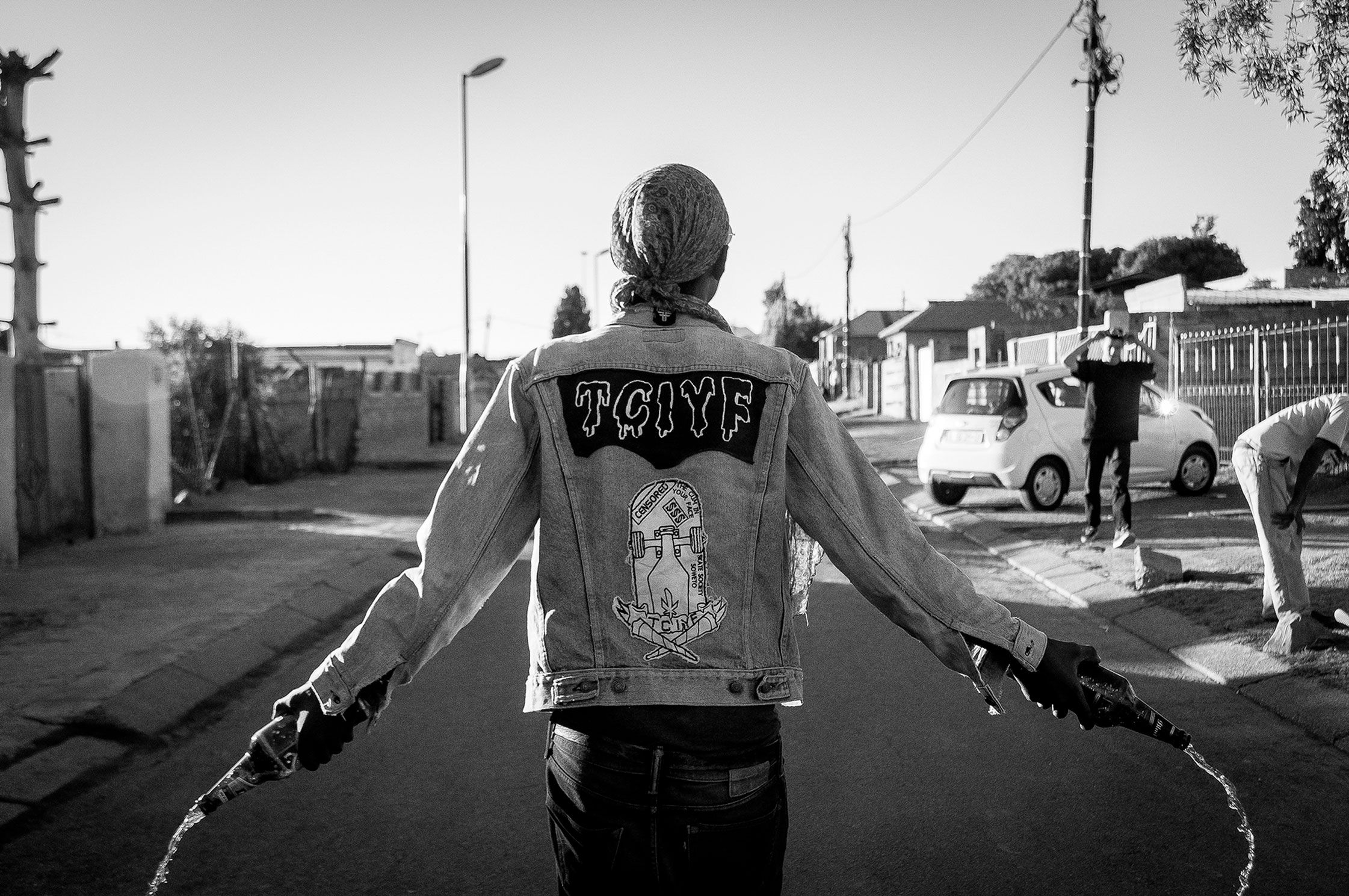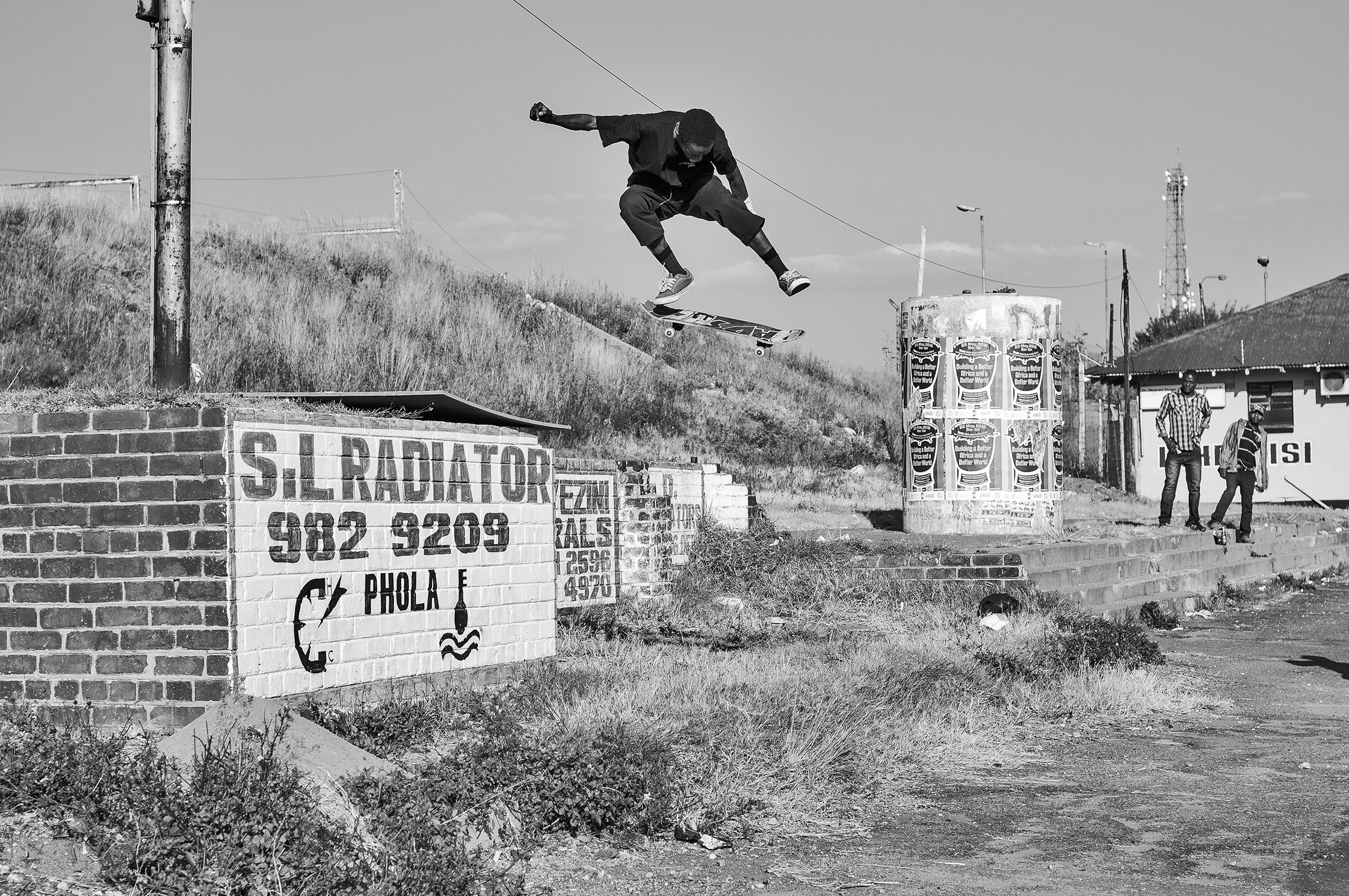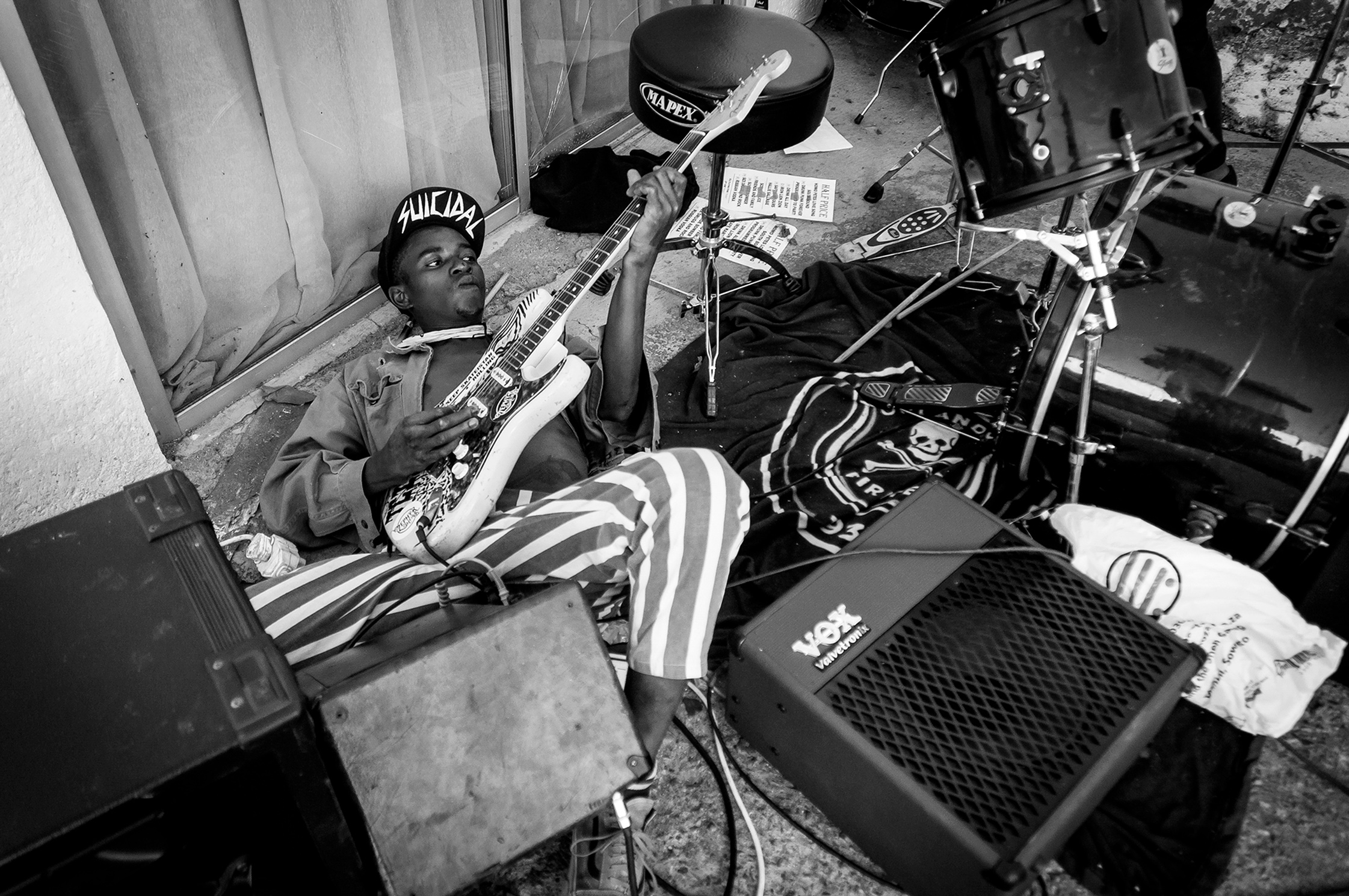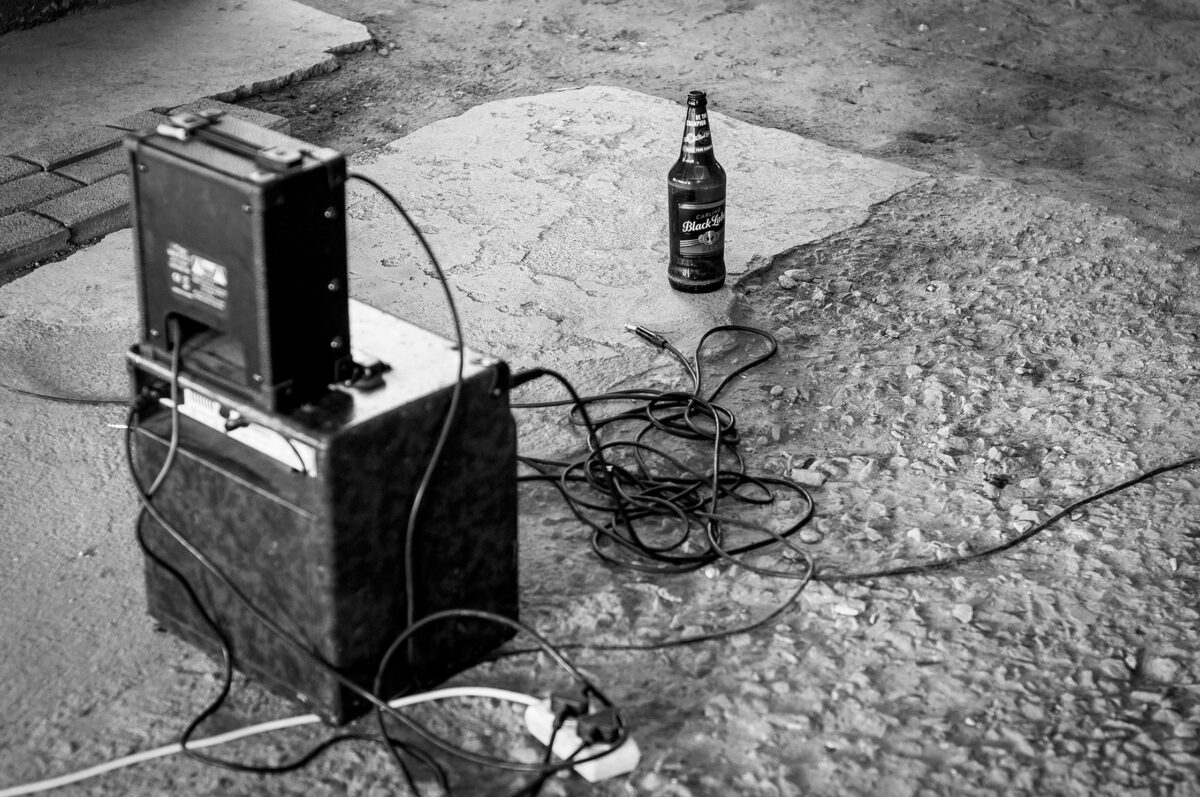Photographer Karabo Mooki has been documenting the punk rock and skateboarding scenes in the township of Soweto, Johannesburg, since 2016.
Having risen out of the need for more creative spaces for disenfranchised young people to express themselves, Soweto’s counterculture scene is the main source of inspiration for photographer Karabo Mooki. “I feel privileged to witness the beautiful chaos of these intersectional cultures thriving in spaces that have not been identified for Black identities to flourish,” he says.







“I feel privileged to witness the beautiful chaos of these intersectional cultures thriving in spaces that have not been identified for Black identities to flourish.”
Not everyone who lives in Soweto—a township which saw a great amount of civil unrest during South Africa’s apartheid regime—views the scene as positively as Mooki. “People who have little understanding of why people would gravitate towards counterculture spaces question your identity and your allegiance to your race,” he says, who himself has faced scrutiny from the surrounding community. “Adopting a broader understanding and a more Western lifestyle can be threatening to those who chose to be a product of their environment.”
As a result, Mooki seeks to change perceptions with his latest photo essay, Dogg Pound Days. Shot in black and white, the series depicts the tight-knit, familial bonds that have formed between members of the counterculture community. The images capture groups of smiling friends dancing together, their movements blurring the shots, heads crammed around microphones singing passionately in unison, and skaters skillfully launching themselves off brick walls.




Many of the photographs feature T.C.I.Y.F, a local punk rock band who were formed out of members of Soweto Skate Society. “T.C.I.Y.F are humble rock-stars who’ve worked hard for everything they have,” he says Mooki. Describing their music as “a reflection of their skateboarding lifestyle: fast, hard and unorthodox,” Mooki adds that they “want to unite people through their music, providing their audiences a glimpse into their own realities.”
One way the band has tried to do this by inviting people from the suburbs into spaces that were once deemed too dangerous for outsiders. “They have opened their homes and hosted prominent punk bands that once only catered to white audiences, allowing them to experience life in the hood. They are raising awareness of the fact that Soweto not only has a turbulent history, but that it is somewhere with limitless potential for the future.”






While Dogg Pound Days is the culmination of many years of documenting Soweto’s counterculture scene, Mooki sees himself merely as a “vessel trying to tell this story of a group of Black youth from Soweto, working hard together to pursue their dreams against the odds and against public criticism.” He hopes it “gives a clear message of believing in yourself, and the importance of paving your own way when all avenues have been met with sceptics or rejection.”
Dogg Pound Days is a photo essay by Johannesburg-based photographer Karabo Mooki. To find out more about his work, follow him on Instagram. Or, if you’d like to learn more about T.C.I.Y.F, the punk rock band
photographed in the series, have a listen to their music on Soundcloud.

